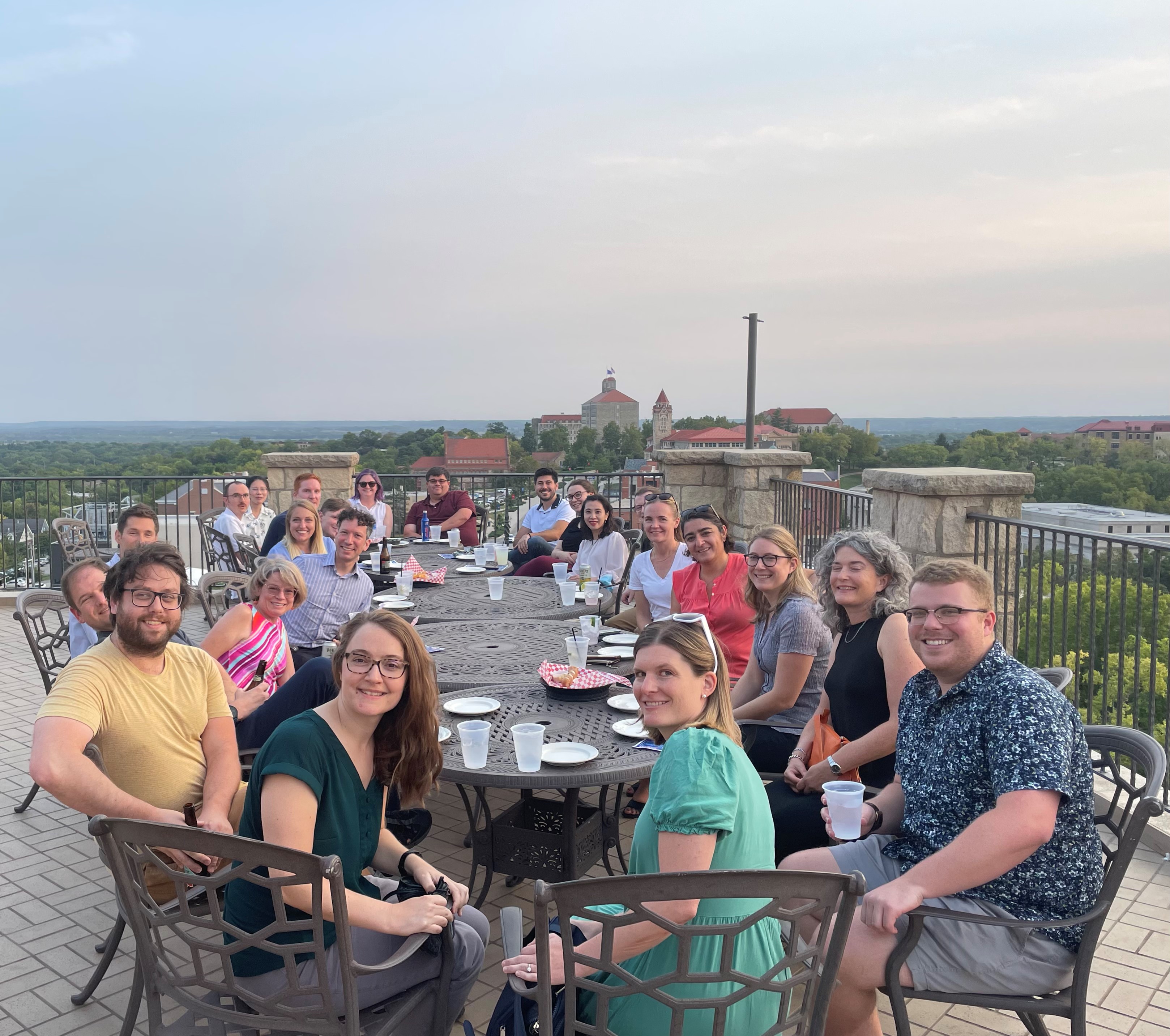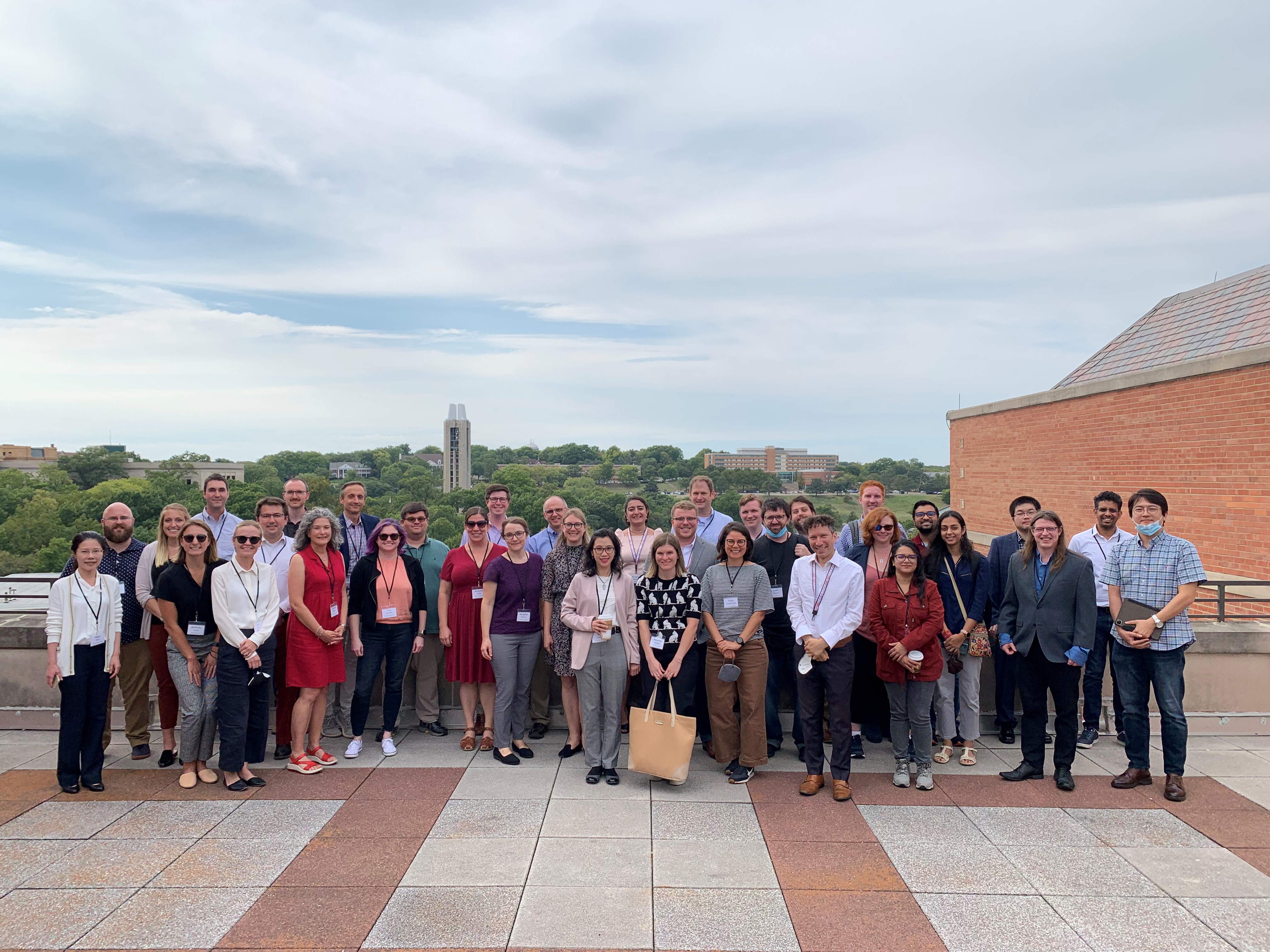Economics Department Hosts Midwest Health Economics Conference

KU and the Economics Department in September were pleased to host the prestigious 11th Annual Midwest Health Economics Conference. Organized by Dr. David Slusky, the event brought 33 individuals from other universities to campus to join a number of KU faculty and student researchers.
Following an introductory breakfast, Economics Department Chair Ric Steele welcomed the participants to the conference, which featured eight papers presented with discussants and an additional five papers presented as part of a lightning round. Topics included physician ratings, hospital upcoding, opioid use, cognitive ability, cancer research funding, abortion access, public hospitals, desegregation, food subsidies, childhood health shocks, emergency departments, and pollution.
Graham Gardner (Michigan State University) presented an especially timely paper on the effects of targeted regulations on abortion providers (TRAP laws) on maternal and infant health outcomes. Distributed just after the US Supreme Court Dobbs decision, the study finds that TRAP laws lead to an 11 to 16 percent increase in rates of hypertensive disorders of pregnancy; and also increase health disparities in infant outcomes at birth across parental race and education. The findings are especially important given the extent to which state actions seeking to restrict abortion are now expected to accelerate.
Additional research presented by Dr. Ben Ukert (Texas A&M University) found that assignment of patients to high-intensity opioid prescribing physicians not only increased the probability of long-term use, but also led to negative effects on work capacity, job performance, and productivity. The analysis also found large increases in behavioral problems for the opioid users, often leading to disciplinary problems and ultimately job separation.
Julian Reif (University of Illinois) presented a paper on pollution and US mortality rates. The authors construct a model that suggests reductions in sulfur dioxide levels in the US between 1972-1988 can explain a meaningful share of the observed mortality decline over that period.
While in Lawrence, a number of conference participants were delighted to receive a private tour of Allen Fieldhouse, home of the defending national champion Kansas Jayhawks. They were also able to enjoy food and drinks from the Oread, Limestone Pizza, 1900 Barker Bakery, Wheatfields Bakery, and 715.
The conference was generously funded by the National Science Foundation and the KU Department of Economics.
